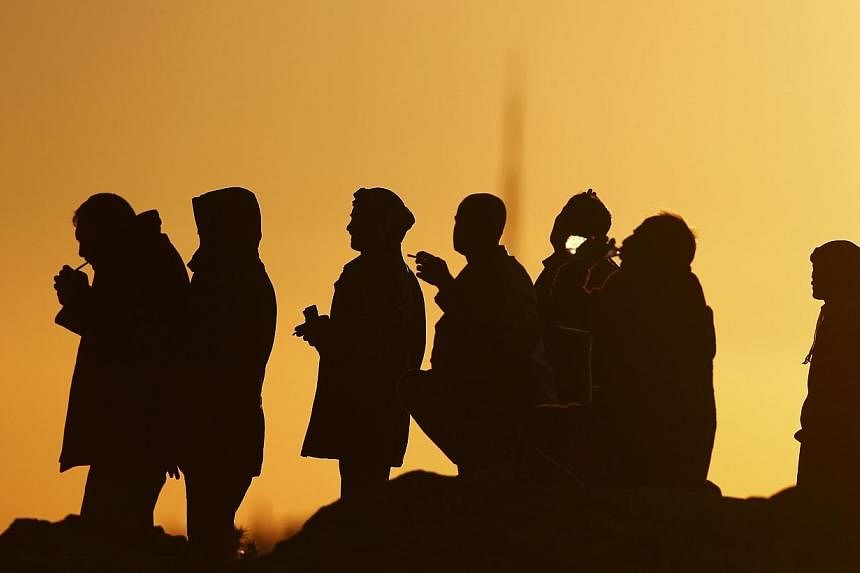ARBIL, Iraq, Oct 23 (Reuters) - Syrian Kurdish factions have signed a deal to share power and set their rivalries aside to capitalise on growing international support for their fight against Islamic State militants.
The agreement was reached late on Wednesday after nine days of talks and coincided with a decision by Iraqi Kurdistan to send its own peshmerga forces to relieve fellow Kurds in the Syrian town of Kobane, under attack by Islamic State in Iraq and Syria (ISIS).
The planned deployment marks the semi-autonomous region's first military foray into Syria's war and is also part of a surge in support for the Kurds, whom the United States have been helping with airdrops and strikes.
Kurds have taken advantage of more than three years of civil war in Syria to carve out their own zone of influence in the north of the country, but have been beset by internal rivalries.
Early this year, the dominant Democratic Union Party (PYD) established three "cantons" in northern Syria and declared self-rule, but other Kurdish parties rejected the move.
Wednesday's deal, which was signed in Iraqi Kurdistan under the auspices of the region's President Masoud Barzani, puts decision-making in the hands of a new body in which all parties will be represented.
It also seeks to address one of the main sticking points between the parties: the PYD's insistence that no armed force other than its own militia, the Popular Protection Units (YPG), is viable.
The existing administration created by the PYD is to be"developed" and elections will eventually be held for a Syrian Kurdish parliament, although no timetable has been set.
Kamiran Hajo, a member of the PYD's main political rival, the umbrella Kurdish National Council (KNC), said the Kurds felt international opinion was on their side, and the agreement would help them win greater legitimacy on the world stage.
Some countries are reluctant to aid Syria's Kurds because of the PYD's links to the Kurdistan Workers' Party (PKK), designated a terrorist organisation by the United States, Europe and Turkey, against which it has fought a three-decade insurgency. "The agreement is very important. It will have a very positive effect on the ground in Syria," said Hajo.
The pact is the third of its kind. Two previous deals to unify Syrian Kurdish ranks fell apart, with other parties accusing the PYD of monopolising power and being in league with President Bashar al-Assad.
The PYD's rivals are ranged under the KNC, which looks to Barzani for patronage. "They know if they have unity in Syria it will lead to easier co-operation with the West, and will also lead to better coordination against ISIS," said Wladimir Van Wilenberg, an analyst of Kurdish politics with the Jamestown Foundation.
Representation in the new decision-making body will be divided among the Democratic Society Movement, which includes the PYD, with 40 per cent, the KNC with another 40 per cent and independents with the remaining 20 per cent.

